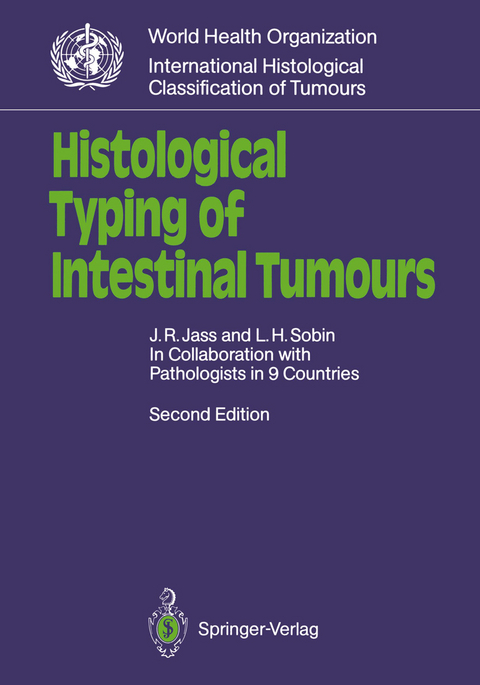
Histological Typing of Intestinal Tumours
Seiten
1989
|
2nd ed.
Springer Berlin (Verlag)
978-3-540-50711-6 (ISBN)
Springer Berlin (Verlag)
978-3-540-50711-6 (ISBN)
In Collaboration with Pathologists in 9 Countries
This classification is based primarily on the microscopic characteris tics of tumours. It is therefore concerned with the identification of cell types and histological patterns as seen by conventional light micro scopy. In general, time-honoured terms have been retained. Syn onyms are listed only if they have been widely used or if they are con sidered to be important for understanding the disease process. In such cases, the preferred term is given first, followed by the synonym in parentheses. The individuality of a tumour manifests itself principally in its histological appearance and the extent of spread at the time of diag nosis. This volume is concerned only with the histological classific ation of tumours. Anatomical extent or staging is covered in the TNM Classification.! The histological classification of a tumour de pends on two main parameters, typing and grading, and a number of additional parameters which may apply to selected examples. Histological Typing This divides tumours of a given organ into different types according to their direction of differentiation. Although this may frequently in dicate the underlying histogenesis of the tumour, it may be difficult or impossible to identify the cell of origin. Note is taken of the structure and function of cell types, as well as the overall growth pattern of the tumour, with the aim of matching these features to those of a normal tissue found in the same organ.
This classification is based primarily on the microscopic characteris tics of tumours. It is therefore concerned with the identification of cell types and histological patterns as seen by conventional light micro scopy. In general, time-honoured terms have been retained. Syn onyms are listed only if they have been widely used or if they are con sidered to be important for understanding the disease process. In such cases, the preferred term is given first, followed by the synonym in parentheses. The individuality of a tumour manifests itself principally in its histological appearance and the extent of spread at the time of diag nosis. This volume is concerned only with the histological classific ation of tumours. Anatomical extent or staging is covered in the TNM Classification.! The histological classification of a tumour de pends on two main parameters, typing and grading, and a number of additional parameters which may apply to selected examples. Histological Typing This divides tumours of a given organ into different types according to their direction of differentiation. Although this may frequently in dicate the underlying histogenesis of the tumour, it may be difficult or impossible to identify the cell of origin. Note is taken of the structure and function of cell types, as well as the overall growth pattern of the tumour, with the aim of matching these features to those of a normal tissue found in the same organ.
Histological Classification of Intestinal Tumours.- Small Intestine.- Large Intestine.- Anal Canal.- Anal Margin.- Definitions and Explanatory Notes.- Small Intestine.- Large Intestine.- Anal Canal.- Anal Margin.
| Erscheint lt. Verlag | 31.8.1989 |
|---|---|
| Reihe/Serie | WHO. World Health Organization. International Histological Classification of Tumours |
| Zusatzinfo | XII, 132 p. 136 illus. |
| Verlagsort | Berlin |
| Sprache | englisch |
| Maße | 170 x 242 mm |
| Gewicht | 348 g |
| Themenwelt | Medizinische Fachgebiete ► Chirurgie ► Viszeralchirurgie |
| Medizinische Fachgebiete ► Innere Medizin ► Gastroenterologie | |
| Schlagworte | classification • Endoscopy • Gastrointestinaltrakt • Lymphoma • Pathology • Small Intestine • Tumor |
| ISBN-10 | 3-540-50711-6 / 3540507116 |
| ISBN-13 | 978-3-540-50711-6 / 9783540507116 |
| Zustand | Neuware |
| Haben Sie eine Frage zum Produkt? |
Mehr entdecken
aus dem Bereich
aus dem Bereich
Buch | Softcover (2022)
Urban & Fischer in Elsevier (Verlag)
CHF 76,80


